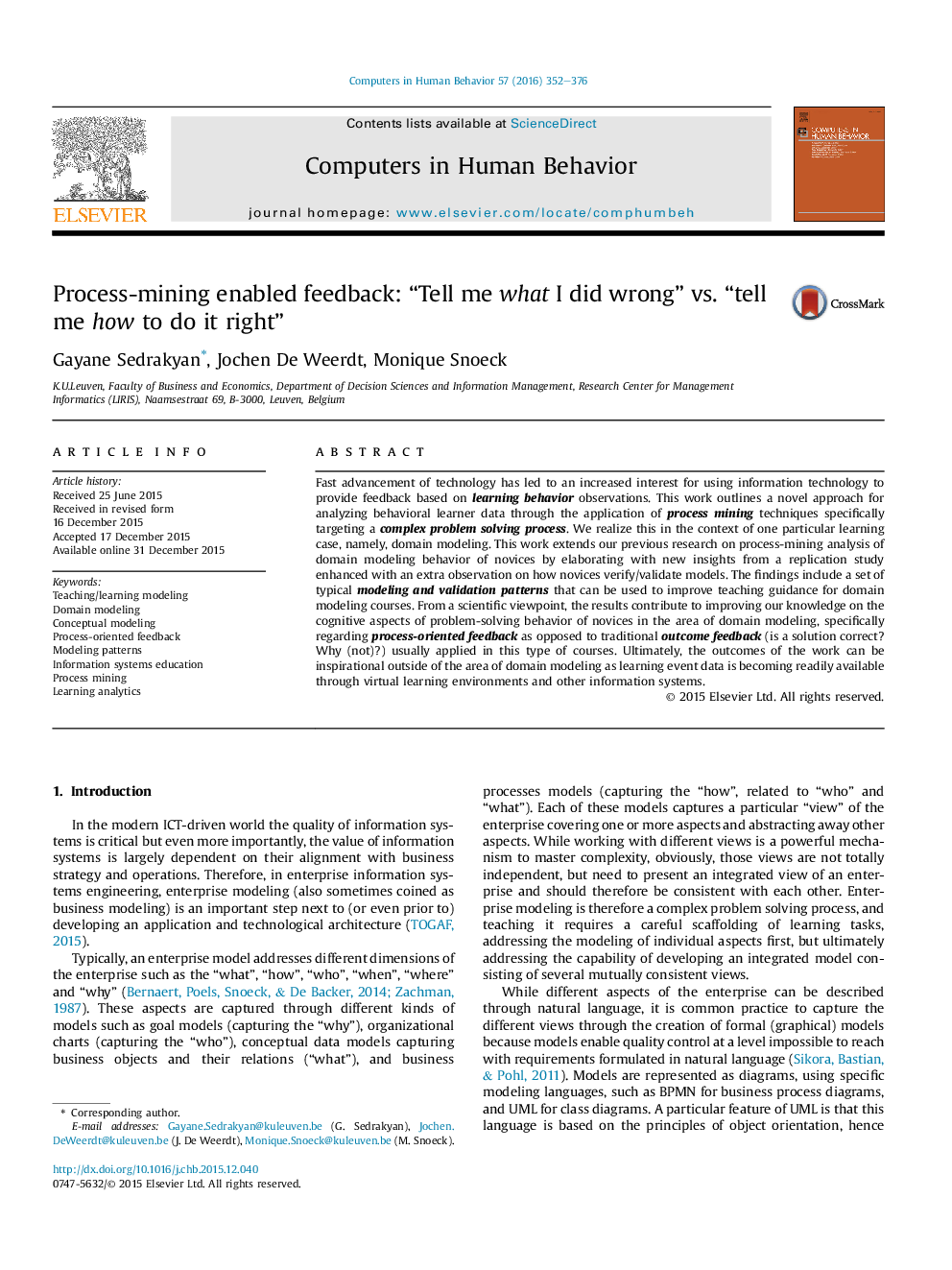| Article ID | Journal | Published Year | Pages | File Type |
|---|---|---|---|---|
| 350246 | Computers in Human Behavior | 2016 | 25 Pages |
•This work extends our previous research on process mining of learner data.•Complex task solving process for conceptual modeling by novices is analized.•The extension includes an observation of extra activities for model validation.•Modeling/validation patterns indicative for learning outcomes are found.•The findings provide a basis for process-oriented guidance and feedback.
Fast advancement of technology has led to an increased interest for using information technology to provide feedback based on learning behavior observations. This work outlines a novel approach for analyzing behavioral learner data through the application of process mining techniques specifically targeting a complex problem solving process. We realize this in the context of one particular learning case, namely, domain modeling. This work extends our previous research on process-mining analysis of domain modeling behavior of novices by elaborating with new insights from a replication study enhanced with an extra observation on how novices verify/validate models. The findings include a set of typical modeling and validation patterns that can be used to improve teaching guidance for domain modeling courses. From a scientific viewpoint, the results contribute to improving our knowledge on the cognitive aspects of problem-solving behavior of novices in the area of domain modeling, specifically regarding process-oriented feedback as opposed to traditional outcome feedback (is a solution correct? Why (not)?) usually applied in this type of courses. Ultimately, the outcomes of the work can be inspirational outside of the area of domain modeling as learning event data is becoming readily available through virtual learning environments and other information systems.
